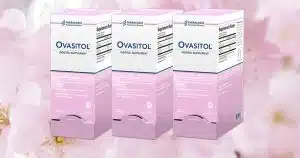If you have PCOS, Omega 3 fatty acids are an important element to add to your pcos diet.
But what are they? Both Omega 3 and Omega 6 are Essential Fatty Acids. They cannot be made within the body and have to be sourced in our diets.
They help to:
- Maintain and develop healthy cells walls
- Aid brain function
- Mediate inflammation
- Promote healthy hair and skin
Interestingly, there are certain vitamins that can only be absorbed in the presence of fats. Vitamin D is one of them, which women with PCOS are often deficient in.
Omega 3 and Polycystic Ovarian Syndrome
Recent research has found that increasing Omega 3 intake results in improved “free” testosterone levels Omega 3 improves free testosterone levels in women with PCOS in women with PCOS. It is this free testosterone that causes increased hair growth, acne and hair loss. Also, taking Omega 3 supplements may improve the quality of eggs produced from the ovaries, improving fertility. But, that’s not all! It also helps to improve insulin sensitivity. Sounds good, doesn’t it?!
Be careful of too much Omega 6
Omega 3 and Omega 6 work best when they are present in the body in the right ratios. It is thought that the best ratio for optimal function is 1:1. But, in our modernized, Western society, the ratio is closer to 16:1 and sometimes even 30:1 in favour of Omega 6. So, we need to increase intake of Omega 3’s and decrease Omega 6. Let’s have a look at how we can do that.
Sources of Omega 6
Omega 6 fatty acids are polyunsaturated fatty acids and are found in nuts and seeds and vegetable oils. These refined vegetable oils are found in most snacks, crackers and cookies. Soybean oil is also virtually synonymous with the fast food industry. So you can see that Omega 6 is prevalent in processed, convenient fast foods.
Also, Omega 6 is responsible for inflammation, blood clotting and cell proliferation. These are all important functions, as long as they are kept in check and not left to spiral out of control. Don’t get me wrong, we need Omega 6 but in a much lower quantity. So, why not cut out the fast, processed foods and get your Omega 6 from natural whole sources like those nuts and seeds?
Sources of Omega 3
Excellent sources of Omega 3 include flaxseed, walnuts, sardines and salmon. Although you can take an Omega 3 supplement, it is more easily absorbed and used by the body when it comes straight from the food source. The image below comes from a great website called “The World’s Healthiest Foods” and gives you a good idea of sources of Omega 3’s. The other huge advantage of incorporating these foods into your PCOS diet is that they are low GI and will not impact your insulin and sugar levels in an unhelpful way.
I also do take an Omega 3 to make sure that I am doing all that I can to get those ratio’s right. Now, there are a couple of ways to take on Omega 3 supplement. You could take capsules (like Nordic Oils) or a omega 3 oil (like this one from Nordic Naturals).
So, bring on the nuts and fish to increase those Omega 3’s and decrease that testosterone! I’d love to hear if you’ve seen any improvement in your PCOS symptoms since increasing your Omega 3 intake – drop me a line below!
- sustainable pcos weight loss strategies
- Over 5500 women have done it and seen results
- [bonus] Done for you pcos meal plans
- [bonus] intermittent fasting for pcos course
- [BONUS] personalised nutrition plan
JOIN OVER 5,500 OTHERS









